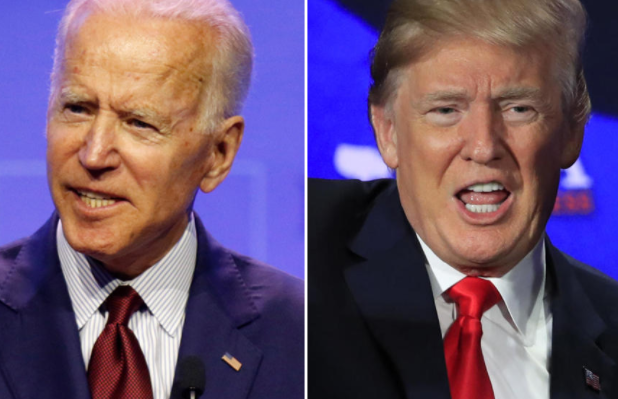The Debate is Biden’s to Lose

At long last, the clash of the titans in the US Presidential race begins with Tuesday’s showdown between Donald Trump and Joe Biden, eagerly awaited not just by American voters, but by observers of US politics around the world. Not the least of those keen spectators is a former Republican candidate for the US Congress like myself, who has also helped prepare numerous heads of state in other countries for their own election campaign debates. Accordingly, here are a few factors that will determine the winner:
- Managing expectations
Debates are first and foremost a game of expectations, which Joe Biden knows well, having taken to the stage 12 years ago against John McCain’s running mate Sarah Palin. (Remember her? You betcha. Let’s be thankful for silver linings, like her absence for the past four years.) The 2012 Vice Presidential debate pitted Biden’s three decades experience on the Senate Foreign Relations Committee against Palin’s claim of being able to see Russia from parts of Alaska.
McCain’s team cleverly executed preemptive damage control by not fighting this perception of imbalance. As a result, Palin was not expected to compete with Biden’s grasp of foreign policy issues, and she delivered her most memorable moment by asking him, “hey, can I call you Joe?” during the introductory handshake. Palin thus came across as a hokey everywoman, which played to her strengths. She emerged unscathed.
Team Trump has not been so adept in managing debate expectations, at least concerning Biden. Incessant mockery of him as a senile half-wit who has lost his faculties ironically suits Biden’s team quite well. They have not aggressively countered this tactic, preferring to let the impression ride and prepping him to debate with strong command of the issues, thereby automatically looking more presidential than expected. If he can also hammer Trump’s economic track record – the most important issue in the race – by citing statistics accurately, he’ll score major points.
Advantage: Biden
- Controlling the fight
On the other hand, Biden must avoid obvious traps, especially concerning his opponent’s behavior. Democrats have spent four years in perpetual hysteria over Trump’s provocative tweets and obnoxious antics, the rope he gave them to do their own hanging. Biden should not give voice to vitriol, instead keeping a confident but measured tone, for example, when addressing Trump’s alarming recent remarks about not conceding the election peacefully. Otherwise, he risks fighting on Trump’s turf, thereby violating a cardinal rule of campaign strategy, succinctly put in the mantra of the great Stanley Greenberg, who advised Bill Clinton and Nelson Mandela: “whoever controls the fight, wins.”
Advantage: Trump
- Emotion, not precision
Perceived debate “victory” does not necessarily correlate with superior skill in advocating a program, defending a track record, or critiquing an opponent. Hillary’s Clinton’s 2016 showing illustrates this point brilliantly. She answered with the precision of a Swiss watch. Campaign consultants dream to have clients with her level of discipline. With such mastery of the material, she even managed to deliver responses seemingly pre-packaged for social media sharing.
Yet, like the neat-and-tidy but ultimately uninspired marketing campaign of a losing team on Trump’s reality show “The Apprentice,” her performances fell mostly flat on independent voters. Politics is a business of emotion, and her well-crafted statements could not compare with the sentimental appeal of Trump’s “Make America Great Again,” even though he gave some mind-bogglingly incompetent answers.
Advantage: toss-up
- It’s about the voters, not the candidates
Trump’s supporters ought to pray that he heed the words of his seasoned mainstream Republican advisors, like NJ natives media guru Larry Weitzner and Campaign Manager Bill Stepien, who are surely counseling him to put aside the blow-hard 2016 playbook. That approach worked four years ago because voters, especially in economically battered regions of the midwest, felt exasperated after eight years of Obama, and Trump gave them hope that he would “Make America Great Again.” The devastating impact of COVID-19, however, has taken much wind out of those sails, and Trump needs to reassure them that he will right the ship, that a vaccine is forthcoming, and that the nightmare will soon be over. The race hinges on how they actually feel, not how Trump thinks they should feel.
Advantage: Biden
If Trump can find a way speak with thoughtfulness and compassion, as he did manage to do successfully at precious few moments during the past four years, he will also have scored a huge win in the expectations game. Everyone assumes a bigmouth bully will show up; if he can temper that urge in crucial spots to reassure independents that he feels their pain, he steals the show.
But Trump is his own worst enemy. The odds don’t favor him being able to get out of his own way. The debate, like the race, is Biden’s to lose.
George Ajjan, an international political strategist, is a former Republican candidate for US Congress in the 8th District who has advised parties and candidates in more than 20 countries on 5 continents.





